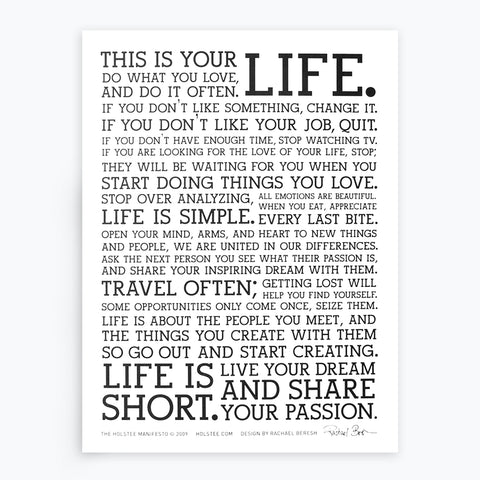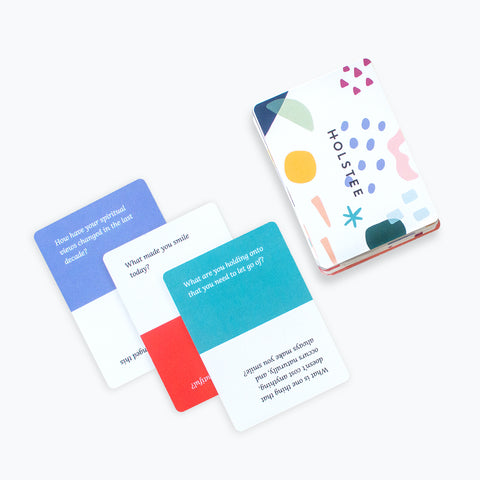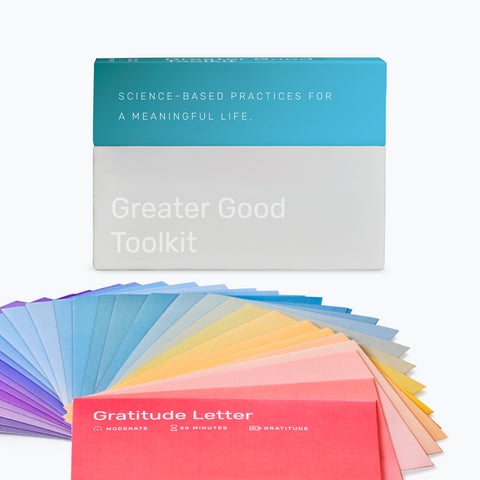Do you remember when if you wanted to catch a certain TV show, you had to be at home while it was on? (Kind of the same way if you wanted to receive a phone call, you had to be there when it rang.) Either that or you had to rely on a clunky, shoebox-sized tape to record said show, a process that oftentimes did not work or, when it did, you ran the risk of recording over a crucial home video moment.
These days, a lot in the world of television has changed. And with those changes has also come a noticeable spike in my consumption of this magical, enticing world. For the past year or so, much of my self-evaluation on how I spend my time has centered around the specific, practical and probably often-true line in our company’s Manifesto: “If you don’t have enough time, stop watching TV.” While it’s a line that’s always resonated with me on other occasions, the reason it’s lately kept popping into my head as I scan through my “Continue Watching” list on Netflix is because these days TV has gotten a lot, well, better. And better shows paired with the fact that they’re dangerously more accessible (Full seasons, all at once! No commercials! Every episode of Parenthood in a row!) means I’ve recently begun spending a lot more time in front of my television, laptop and even my smartphone (that Netflix app while you’re on the treadmill really makes the run fly by).
So where does this start to get problematic? Because part of the whole TV-getting-better bit is not just the accessibility of being able to watch it on our own schedule. It’s also that the plethora of content being put out there is generally getting better, too. There have recently been an influx of series, documentaries and movies that are delving into rich, cultural conversation through more clever and sometimes even comedic means. (A great example of this is Michael Pollen’s four-part documentary series, Cooked, specifically in tune with this month’s theme of Nourishment. The episode on Air [or, bread!] was my favorite.)
If the TV we’re watching is more thought-provoking, conversational and generally more substantial than, say, a weekend-long Family Guy binge, (not a diss, but a spade’s a spade), then is our 5-hour-a-day habit (the American average according to this recent article in the New York Daily News) really all that damaging?
"Art is a form of nourishment." - Susan Sontag
Tweet It!
Well, yes and no. First, I should clarify that even though not all television is created equal, everyone is entitled to their own preferences and to glean as much wisdom or enjoyment from that programming as they’d like. For example, comedian Louis CK’s FX show Louie is my personal holy grail; to me, it’s the complete communion of hilarity and reality. That being said, it’s not for everyone. Some would find it downright offensive while others would have to hunt for reasons to find it culturally relevant or even important. I’m looking forward to the Gilmore Girls reunion as much as every other Generation Y-er out there. The cult classic Goodburger is still (yes, still) one of my favorite movies and I will remain unembarrassed about that fact. And I do believe there’s something important about capturing time for real relaxation, a practice that seems to have been recently abandoned as “unimportant.” Sometimes TV can be a way to do that. If a favorite show helps you unwind or reflect, there is a value there. But are we missing something by choosing this method of kicking back as our default, our fall-back? Do we not know how to just chill anymore if Netflix isn’t part of the equation?
There are a lot of reasons why this might be true, and many of those reasons will only make sense with more examination. And of course there’s still the known truth that TV has gotten better and easier to watch in binge-able amounts. The Wall Street Journal also made the argument that because we’re generally busier, we don’t have much time for other types of recreation. Many times, TV is our sole outlet: yikes. But an hour is an hour is an hour, right? So why do we have more time for TV but less time for other things? Is it because we think of TV as an option that doesn’t demand much from us as far as interaction or participation? Sometimes we only half pay attention while we scan through our email or make mental lists for the next day (that example might be getting a little personal, but you get the picture). So does it really count as time well spent if we aren’t even engaged? And if we are engaged, riveted by the story or moved by the characters, is it more okay?
I’m not sure. What I do know is that I’ve often spent a Saturday morning watching a home-makeover marathon only to realize I’ve lost three hours to something that isn’t exactly useful to me. Not only am I not a home-owner and don’t have a whole lot of creative liberty to, say, create an accent wall in my apartment, moments like these also generally leave me with a sense of lacking, an urge to have something that’s currently out of my reach. Is that all bad? No, not really. Maybe watching a bunch of middle-America suburbanites create their dream kitchen will motivate me to chase my version of that, whatever that may look like. Or maybe it will leave me feeling like I haven’t accomplished any part of my regular weekend to-do list (or want-to-do list) and I also don’t have a kitchen island the size of a continent. Yes, that is a real thing a real home buyer on a real show said.
There’s also the perspective that a lot of the television out there offers us a peek into a reality we might not otherwise experience. Never say never, but I’m not likely to become a heavily tattooed undercover agent searching for holes in the FBI system. I truly hope to never be the last person remaining on earth. I’ll never be a single mid-forties father of two fostering a stand-up comedy career in New York City. I haven’t worked as a small town government employee trying to put forth my best effort while relying on a group of disjointed but well-meaning misfits. I’ve never had to forge my way into a new relationship while carrying the burden of addiction. These and many more are examples of stories and lives I’ve never existed within, some that I’ve never even witnessed in any other way.
Would my life be missing something very important without those glimpses? I think so. And while one can argue (and I would wholeheartedly agree) that the same types of experiential information can be gained through reading books or meeting people outside your normal social circle, there’s a reason the medium of TV works, still works and only gets better over time.
So where does that leave us? While television totally has the capacity to make us more human, to understand a piece of the world that isn’t our own, to experience anger, fear, devastation, happiness and love as if they are personal to us, how can we make sure that we aren’t letting these positive outcomes interfere with the rest of our lives?
I think the important place to begin is by asking yourself what you’re giving up to make time for TV. Nothing? Is there anything hanging over your head or a responsibility you’re ignoring in place of more time in front of the screen? That’s something only you can answer honestly, but I know I’ve many times been guilty of giving TV a top priority that it certainly didn’t deserve. I’m not suggesting that we completely give it up as I’ve already emphasized the benefits that can clearly be there. I’m just suggesting that we have a little more awareness, remind ourselves that our time is valuable, fleeting and irreplaceable and to ask ourselves if this is how we want to spend an hour (or up to five) of our days. Sometimes the answer will be yes and I think that’s okay. Sometimes, if we’re honest, we’ll realize there’s something else we need or want to do that’s more important. Let’s try not ignore that urging for one more episode. After all, it will always be there, and many more.
___________________________________
Helen Williams is the Community Love Director at Holstee. She is passionate about cooking and writing which pair well together on her vegetarian food blog, green girl eats. She strives, every day, to be less sorry.
Begin your day feeling grounded and inspired.
A free 30-day email series where we share the most impactful stories and ideas that have helped us on our journey to live a more meaningful life.
✌️ Free. Unsubscribe anytime.
























